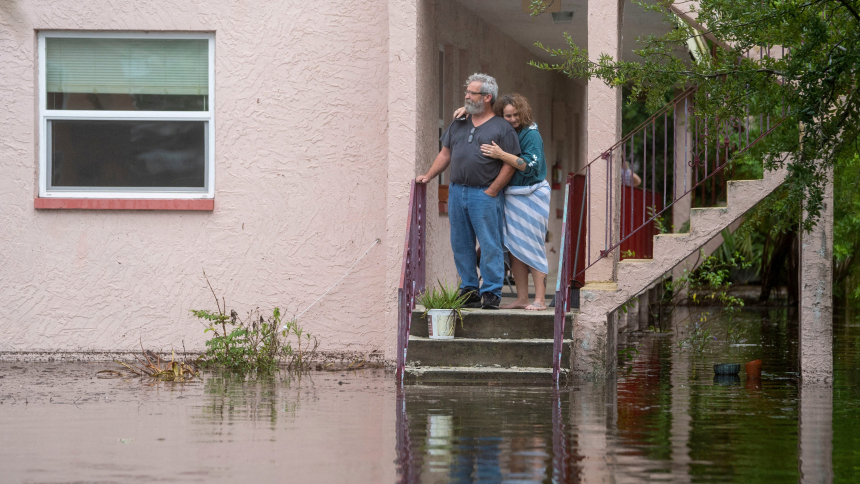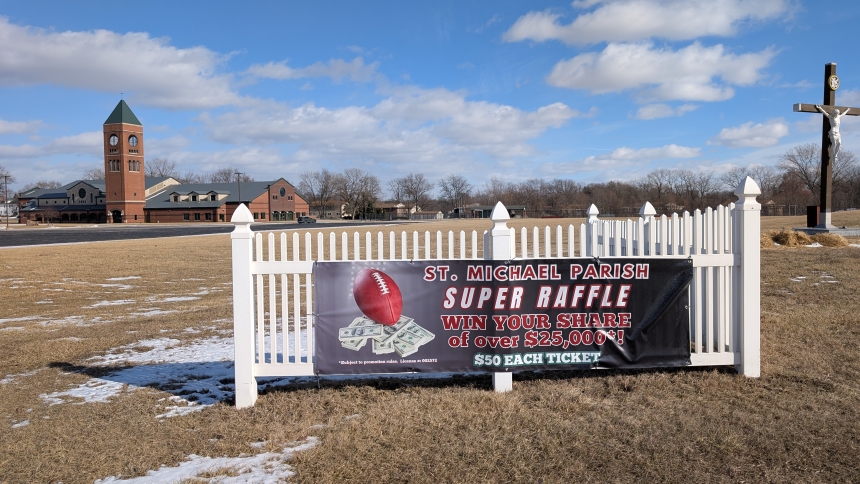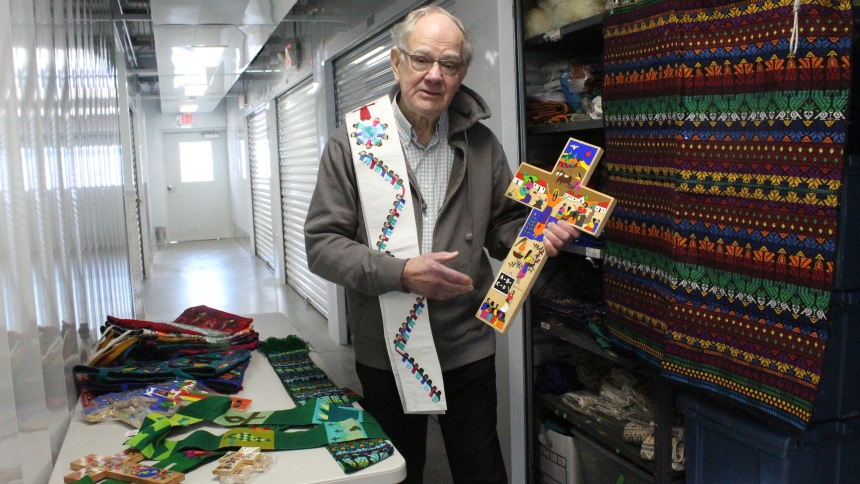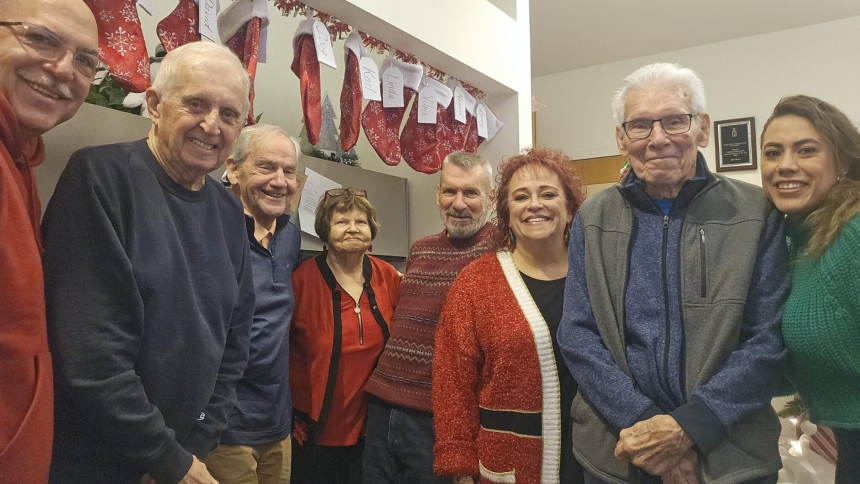
(OSV News) - Catholic aid workers are rolling up their sleeves to help tens of thousands after Tropical Storm Idalia slammed into the nation's Southeast.
"I just feel horrible for residents, that they had to go through this," Matthew Knee, president and CEO of Catholic Charities of Northwest Florida, told OSV News.
Initially a Category 4 hurricane, Idalia made landfall Aug. 30, hitting Florida's Big Bend area - where the state's panhandle meets its peninsula - as a Category 3 tropical storm, and the largest to touch down in the Big Bend area in more than 125 years.
Although no fatalities have as yet been reported, Idalia caused flooding, wind damage and record-level storm surges, leaving more than 400,000 customers in Florida, Georgia and South Carolina without power.
Knee, who spoke with OSV News by phone Aug. 31 as he visited affected communities, said "along the coast there was a good bit of flooding," while inland areas saw "a lot of wind damage, with trees on cars and houses."
Immaculate Conception Parish in Perry, Florida, "sustained some damage," he said, with "some trees (falling) on the parish hall."
"It's nothing that can't be fixed," said Knee.
On Sept. 1, the parish will host a relief distribution event sponsored by both Catholic Charities and World Central Kitchen, with hot food, shelf-stable meals and water.
Residents' top needs at the moment are "essential supplies," said Knee, but his agency is already gearing up for a seamless transition from emergency distributions to "longer term recovery efforts."
Following 2018's Hurricane Michael, the agency provided some 89,000 individuals with essential aid for 49 days, and only concluded four years of recovery efforts in October 2022, Knee said.
"We did close to 600 major home repair projects - drywall, roofs, flooring - using skilled volunteers," he said. "We could have done 6,000."
The Big Bend area is "super rural," and homeowners -- including those with beachfront properties -- tend to have modest household incomes, he said.
"Everybody thinks, 'You live on the beach; you must be rich,'" Knee said. "But a lot of these are generational homes, passed down by family members."
Natural disasters can often draw investors seeking to buy out vulnerable owners in a "land grab" that "forces people out who have been there for years and years," Knee said. "We saw it after Hurricane Michael with (Florida's) Mexico Beach."
"Our goal is to keep people in their homes and in their communities, especially in rural areas like Big Bend," Knee said. "It's the people that make the community. When you take them out, it changes, and not always for the better."
Catholic Charities and other nonprofits are crucial to that effort, filing in the gaps not covered by other standard forms of aid.
"FEMA (Federal Emergency Management Agency) only goes so far, and insurance only goes so far," Knee said.
"We serve the poorest of the poor," said Knee. "Catholic Charities has always been there for the long haul, to meet unmet needs. ... It's in our blood; it's who we are and what we do. We are the hands and feet of Christ."
Caption: Ken and Tina Kruse stand next to their apartment in Tarpon Springs, Fla., Aug. 30, 2023, after the area was flooded by the Hurricane Idalia, which made landfall in Florida as a Category 3 storm. It unleashed devastation along a wide stretch of the Gulf Coast, submerging homes and vehicles, turning streets into rivers, unmooring small boats and downing power lines before sweeping into Georgia. (OSV News photo/Greg Lovett, USA Today Network via Reuters)



